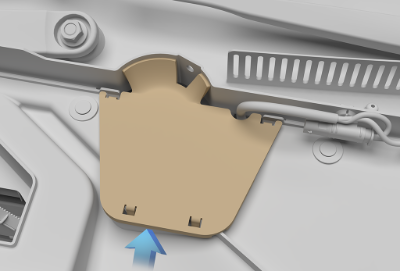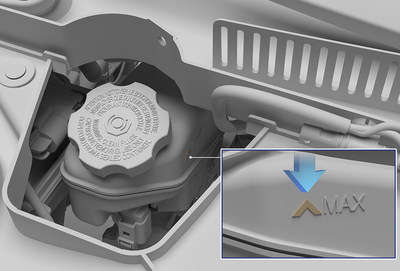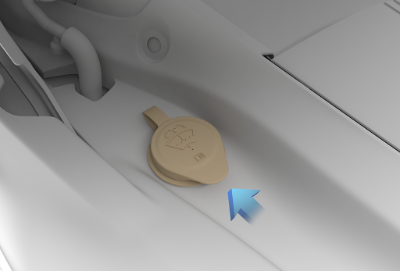Checking Brake Fluid
Low Brake Fluid Warning Indicator
If the fluid in the brake reservoir drops below the recommended level, the brake warning icon will be displayed on the Glass Cockpit. This will be accompanied by a notification message.
Checking the Fluid Level
Check the brake fluid level with the vehicle on level ground.
- Remove the under hood rear apron.
- Remove the brake reservoir cover.

- Check the fluid level visually by looking at the
outside marks on the side of the reservoir without removing the filler cap.

The brake fluid level should always be between the MIN and the MAX marks.
Note: Although the brake fluid level slightly drops during normal use as a result of brake pad wear, it should not drop below the MIN mark. Excessive or frequent fluid loss may indicate a leak in the system.
Topping Off Brake Fluid
To top off the fluid:
- Clean the filler cap before removing it to prevent dirt from entering the reservoir.
- Unscrew the cap and remove.
- Fill the reservoir to between the MIN and the MAX marks using a clean funnel and brake fluid meeting specification DOT4.
- Install the reservoir cap.
Replacing Brake Fluid
The brake fluid should be replaced every 2 years or every 24,000 miles, whichever comes sooner.
